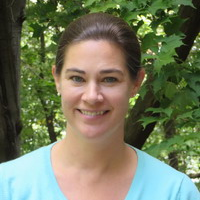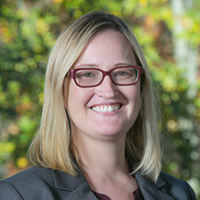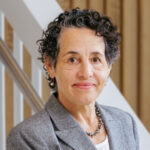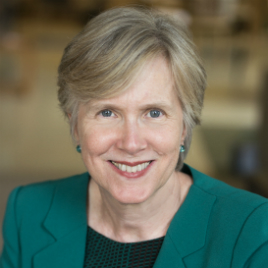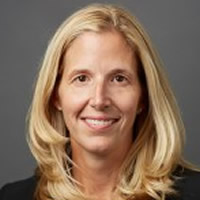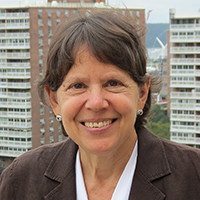Key issues of inquiry for this network include determinates, facilitators, and consequences of family structure and stability; interplay of poverty and inequality with family functioning and human development throughout the life course; policies and programs to promote safe, stable, and healthy families, human capital development, and child well-being.
Co-Leads
Marcia Carlson
Email:
carlson
Marcia Carlson is Professor of Sociology and affiliate of the Center for Demography and Ecology at the University of Wisconsin–Madison, where she is also an affiliate of the Institute for Research on Poverty. Her recent work focuses on changing family patterns, especially related to growing family instability and complexity. She is especially interested in how family behaviors and experiences are linked with socioeconomic inequality.
Christopher Wimer
Email:
cw2727
Christopher Wimer is co-director of the Columbia University Center on Poverty and Social Policy and the Project Director on the Robin Hood Poverty Tracker. He conducts research on the measurement of poverty and disadvantage in both local and national contexts, as well as historical trends in poverty and the impacts of social policies on the poverty rate. He also studies how families cope with poverty and economic insecurity, with a focus on food insecurity and other forms of material hardship. His work pays particular attention to the role of government policies and programs on the wellbeing of low-income families and children.
Members
Elizabeth Oltmans Ananat
Elizabeth Oltmans Ananat is Mallya Professor of Women and Economics at Barnard College, Columbia University. In 2010 she served as Senior Economist for Labor, Education, and Welfare at the White House Council of Economic Advisers. Her research focuses on the intergenerational dynamics of poverty and inequality, including: the causes and consequences of racial segregation, determinants of family structure, effects of local economic change, and reproductive decision making. She takes particular interest in quasi-experimental methods for causal inference and in interdisciplinary approaches to understanding social problems.
Lawrence Berger
Lonnie Berger is Associate Vice Chancellor for Research in the Social Sciences, Vilas Distinguished Achievement Professor of Social Work, and a former director of the Institute for Research on Poverty at the University of Wisconsin–Madison. He is engaged in studies in three primary areas: (1) examining the determinants of substandard parenting, child maltreatment, and out-of-home placement for children; (2) exploring associations among socioeconomic factors, parenting behaviors, and children’s care, development, and wellbeing; and (3) assessing the influence of public policies on parental behaviors and child and family well-being.
Reggie Bicha
Reggie Bicha previously served as Executive Director of the Colorado Department of Human Services, which oversees the state’s county social and human services departments, public mental health system, services for people with developmental disabilities, juvenile corrections system, and state and veterans’ nursing homes. He is a social worker, administrator, and educator with extensive experience working on child welfare, education, employment, and health issues. Bicha previously served as the Secretary of the Wisconsin Department of Children and Families, is a past president of the American Public Human Services Association, and is a recipient of the Casey Family Program’s Excellence for Children Award.
Fredi-Ellen Bove
Fredi-Ellen Bove is a Policy Advisor to the Secretary of the Wisconsin Department of Children and Families. She previously was the Administrator for the Division of Safety and Permanence, which serves as the state child welfare director. Prior to joining the Department of Children and Families in March 2011, Ms. Bove worked for the Wisconsin Department of Health Services for 16 years, where she served as the Deputy Administrator for the Division of Long Term Care and the Budget and Policy Director; and for the University of Wisconsin Board of Regents for 5 years as the Executive Assistant. Before her service in Wisconsin state government, Ms. Bove held a number of policy positions in the federal government.
Maria Cancian
Maria Cancian is a professor in the McCourt School of Public Policy at Georgetown University, and an affiliate and former Director of the Institute for Research on Poverty at the University of Wisconsin–Madison. Her research considers the relationship between public policies and changes in marriage, fertility, employment and family wellbeing. Ongoing projects analyze interactions of the incarceration, child welfare and child support systems, and the implications of multiple partner fertility for family organization and policy. Previously, Cancian served as Senior Advisor to the Secretary of Health and Human Services and then Deputy Assistant Secretary for the Administration for Children and Families (ACF).
Christina J. Cross
Christina J. Cross is a Postdoctoral Fellow in the Department of Sociology at Harvard University and will begin her appointment as an Assistant Professor of Sociology at Harvard in July 2022. She studies the linkages between family background, poverty, race, and child well-being. The central question underlying her research asks: How do family structure, change, and dynamics influence individual well-being across the life course, particularly among low-income and/or minority populations? Much of Cross’s work focuses on childhood as a key stage in the life course for the emergence and accumulation of social advantages or disadvantages. Her research has three interrelated goals: (1) document the prevalence and predictors of previously underexplored family structures that are common among low-income and minority families; (2) investigate how the relationship between family structure and child outcomes is patterned by social class and race/ethnicity; and (3) document within-group differences in family processes among major racial/ethnic groups.
For the Spring 2022 IRP Visiting Poverty Scholars Program she chose to visit the Stanford Center on Poverty and Inequality.
Christina Cross was a 2019–2020 IRP Emerging Poverty Scholar Fellow.
@christinajcross
Ron Haskins
Ron Haskins is a Senior Fellow and holds the Cabot Family Chair in Economic Studies at the Brookings Institution, where he co-directs the Center on Children and Families. He is a senior consultant at the Annie E. Casey Foundation and was President of the APPAM in 2016. Beginning in 1986, he spent 14 years on the staff of the House Ways and Means Committee and was subsequently appointed to be the Senior Advisor to President Bush for Welfare Policy. He and his colleague Isabel Sawhill were recently awarded the Moynihan Prize by the American Academy of Political and Social Science. Haskins was recently appointed to co-chair the Evidence-Based Policymaking Commission.
Katherine Magnuson
Katherine Magnuson is the director of the Institute for Research on Poverty and Professor at the University of Wisconsin–Madison School of Social Work. Her research focuses on the well-being and development of economically disadvantaged children and their families. She examines how disparities in socioeconomic status (SES) affect children’s development, and how these effects may be altered by policies and programs, especially early childhood education programs. She also investigates how maternal education impacts child development.
Ann Masten
Ann Masten is Regents Professor, Irving B. Harris Professor of Child Development, and Distinguished McKnight University Professor at the University of Minnesota. She studies competence, risk, and resilience in development with a focus on the processes leading to positive adaptation and outcomes in children and families whose lives are threatened by adversity. Masten directs the Project Competence Research on Risk and Resilience (PCR3), including studies of normative populations and high-risk young people exposed to war, natural disasters, poverty, homelessness, and migration. At the national and international level, Masten works with colleagues in multiple disciplines to understand adaptation and development, particularly in relation to migration, disasters, and war.
Daniel Meyer
Daniel Meyer is Professor of Social Work at the University of Wisconsin–Madison. His research centers on the economic well-being of single-parent families. Most of his work examines child support policy and welfare reform, employing data derived from his various Wisconsin-based projects. With Maria Cancian, he led a team of researchers that evaluated an experimental innovative child support policy in a multi-year project demonstrating the advantages of allowing all child support paid by noncustodial parents (usually fathers) to go to the family. The evaluation was used as important evidence to change the child support regime in the United Kingdom.
Cynthia Osborne
Cynthia Osborne’s research interests include social policy issues, poverty and inequality, family and child well-being, and family demography. Dr. Osborne has extensive experience leading long-term evaluations of state and national programs, with the aim of helping organizations understand what works, and how to ensure sustainable implementation of effective policies.
Follow on Twitter: @BlahaOsborne
Megan Reid
Megan Reid was a National Poverty Fellow at the Office of Planning, Research and Evaluation from 2015 to 2018 and was mentored by IRP Affiliate Lawrence Berger. Reid earned her Ph.D. in sociology from the University of Texas at Austin and worked as a Project Director at the National Development and Research Institutes before beginning her position as a National Poverty Fellow. Her research focuses on social inequalities, families, housing, and disaster. In her dissertation, she focused on analyzing the experiences of people displaced by Hurricane Katrina and developed the concept of temporal domination to explain how time structures social inequalities. In one project, she focuses on understanding parenting and partnering among low-income Black couples in New York City. Reid is currently a Social Science Research Analyst at the Office of Planning, Research, and Evaluation in the U.S. Department of Health and Human Service’s Administration for Children and Families.
Megan V. Smith
Megan Smith is an Associate Professor in the Departments of Psychiatry and in the Child Study Center in the Yale School of Medicine and in the Division of Chronic Disease Epidemiology in the Yale School of Public Health. Smith is Founder and Director of the Mental health Outreach for MotherS (MOMS) Partnership, a community-academic partnership to improve maternal mental health among low-income women. She is currently working to transform systems of mental health care for low-income women with a focus on reducing mental health inequities related to race, ethnicity and poverty. Smith serves as Principal Investigator on studies ranging from the epidemiology of depressive and anxiety disorders in the perinatal period to the use of mobile health technology to reduce depression in mothers.
Jane Waldfogel
Jane Waldfogel is a professor of social work and public affairs at Columbia School of Social Work and a visiting professor at the Centre for Analysis of Social Exclusion at the London School of Economics. She has written extensively on the impact of public policies on child and family well-being. Waldfogel’s research focuses on the effects of public policies on child and family well-being, both in the U.S. and cross-nationally. Current research interests include improving the measurement of poverty, work-family policies, and understanding socioeconomic status gaps in child development.
